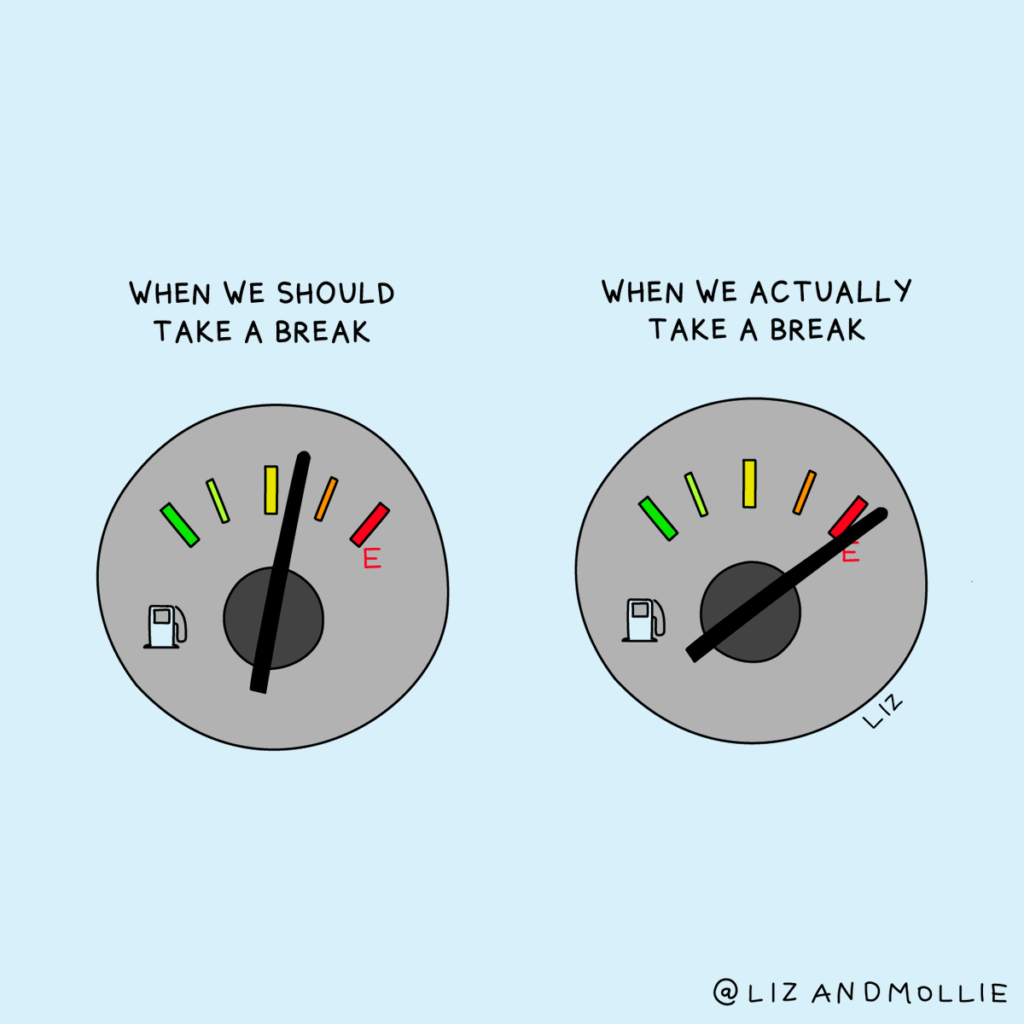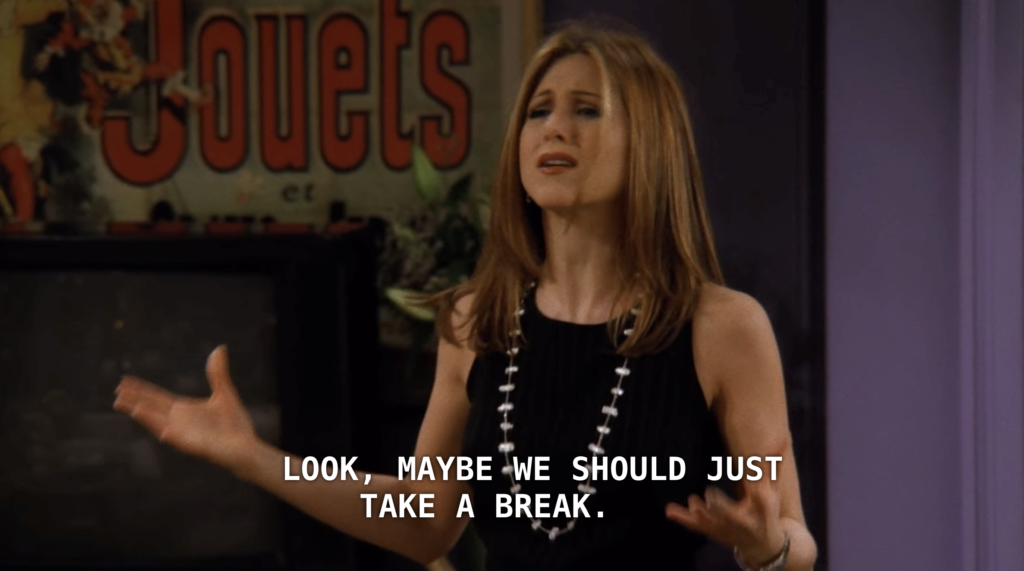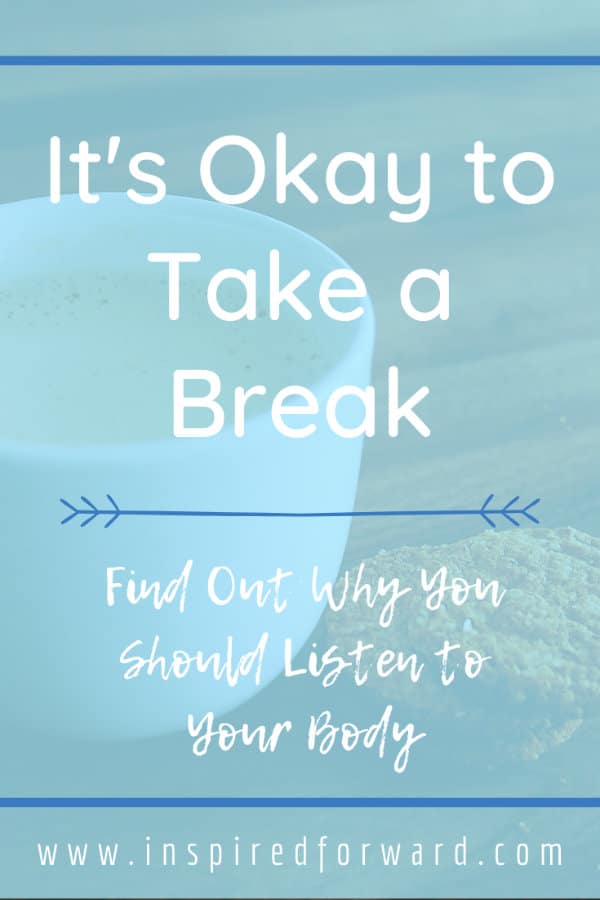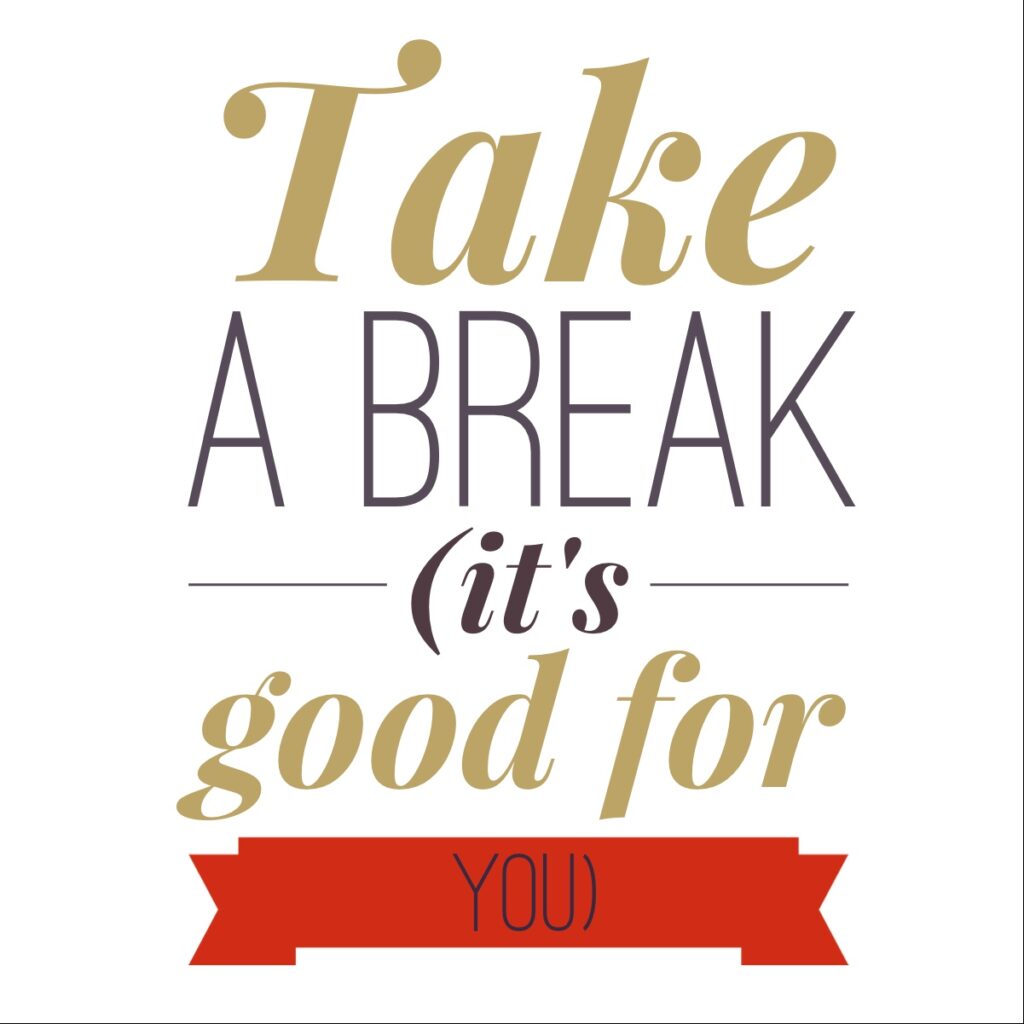
Are you feeling burnt out and overwhelmed by the demands of your daily life? In need of a change of pace? Allow us to introduce you to “Should We Take A Break?” This innovative product is designed to help you assess whether it’s time to step back, rejuvenate, and prioritize your well-being. By guiding you through a series of thoughtful questions and exercises, “Should We Take A Break?” aims to empower you to make informed decisions about self-care and find the balance you’ve been longing for. Say goodbye to exhaustion and hello to a renewed sense of purpose with “Should We Take A Break?”

This image is property of pbs.twimg.com.
Benefits of Taking a Break
Improved productivity
Taking regular breaks has been shown to significantly improve productivity. When you continuously work without taking any breaks, your brain and body become fatigued, leading to a decline in focus and concentration. By incorporating short breaks into your work routine, you give your brain a chance to rest and recharge, allowing you to return to your tasks with renewed energy and focus. This ultimately leads to better overall productivity and efficiency in your work.
Enhanced creativity
Not taking breaks can hinder your creativity and problem-solving skills. When you constantly work without giving yourself a chance to step back and relax, your brain can become stuck in a rigid mindset, making it difficult to think outside the box. Taking breaks gives your mind the opportunity to wander and make connections that you may not have considered before. Whether it’s going for a walk, engaging in a hobby, or simply daydreaming, taking breaks can unlock your creativity and improve your ability to come up with innovative solutions to problems.
Reduced stress
One of the most important benefits of taking a break is the reduction of stress. The demands of work and everyday life can often become overwhelming, leading to high levels of stress and anxiety. By giving yourself permission to take regular breaks, you create a space for relaxation and stress relief. Whether it’s taking a few minutes to practice deep breathing, engaging in a calming activity, or simply disconnecting from work for a while, these breaks can help lower your stress levels and improve your overall well-being.
Improved overall well-being
Taking breaks isn’t just beneficial for your work performance; it also has a positive impact on your overall well-being. When you continuously push yourself without giving yourself time to rest and recharge, you put your physical and mental health at risk. Regular breaks help prevent burnout, reduce the risk of mental health issues such as anxiety and depression, and improve your overall happiness and satisfaction with your life. By prioritizing breaks in your daily routine, you are taking an important step towards taking care of yourself and maintaining a healthy work-life balance.
Negative Effects of Not Taking Breaks
Decreased productivity
One of the negative effects of not taking breaks is decreased productivity. When you don’t allow yourself time to rest and recharge, the quality of your work can suffer. Your brain becomes tired, leading to a decline in focus, attention to detail, and overall performance. The lack of breaks can also lead to increased errors and a slower pace of work, ultimately diminishing your productivity.
Burnout and exhaustion
Continuously working without breaks can lead to burnout and exhaustion. Burnout refers to a state of chronic physical and emotional exhaustion caused by prolonged stress and overwork. When you constantly push yourself without giving yourself time to rest, you are at a higher risk of experiencing burnout. This can lead to feelings of fatigue, lack of motivation, and a decreased ability to cope with everyday tasks.
Mental health issues
Not taking breaks can have a detrimental impact on your mental health. Working without breaks increases the risk of developing mental health issues such as anxiety and depression. The constant pressure and lack of time for relaxation can take a toll on your mental well-being, leading to increased stress levels and a decreased ability to cope with challenges.
Decreased job satisfaction
Not taking breaks can lead to decreased job satisfaction. When you continuously work without giving yourself time to relax and enjoy the fruits of your labor, it’s easy to become disillusioned and resentful towards your work. By incorporating breaks into your routine, you create a space for enjoyment and rejuvenation, improving your overall job satisfaction and motivation.
Finding the Right Balance
Understanding individual needs
Finding the right balance between work and breaks is a personal journey that requires understanding your individual needs. Everyone has different capacities for work and rest, so it’s important to assess your own energy levels and capabilities. Pay attention to how you feel throughout the day and take note of when you start to feel fatigued or overwhelmed. This awareness will help you determine the frequency and duration of breaks that work best for you.
Recognizing signs of burnout
To find the right balance, it’s essential to recognize the signs of burnout. These may include feelings of chronic fatigue, irritability, decreased motivation, and a decline in the quality of your work. Pay attention to these indicators, as they are clear signals that you need to incorporate more breaks and self-care into your routine.
Setting realistic expectations
Finding the right balance also involves setting realistic expectations for yourself. Often, we have a tendency to overestimate the amount of work we can accomplish in a given time frame, leading to a lack of breaks and an increase in stress. By setting realistic goals and prioritizing breaks as part of your work schedule, you can avoid feeling overwhelmed and maintain a healthier balance.
Planning regular breaks
Finally, finding the right balance requires planning regular breaks. Instead of waiting until you feel burnt out or overwhelmed, proactively schedule breaks into your day. Whether it’s a short walk outside, a few minutes of stretching, or a dedicated hour for lunch, make sure to include these breaks in your daily routine. By planning ahead, you prioritize your well-being and ensure that you have the time and space to rest and rejuvenate.
How Often Should You Take a Break?
Frequency depends on the task
The frequency of breaks depends on the nature of the tasks you are working on. Some tasks may require more concentration and attention, while others may be less demanding. As a general guideline, it’s recommended to take short breaks every 60-90 minutes of focused work. This allows your brain to recharge and helps maintain optimal productivity throughout the day.
Short breaks throughout the day
In addition to regular short breaks, it’s important to take micro-breaks throughout the day. These are short moments of rest and relaxation that you can incorporate into your work routine. Examples of micro-breaks include taking a few minutes to stretch, closing your eyes and taking slow, deep breaths, or simply changing your focus to something other than work for a few minutes. These brief pauses help prevent mental fatigue and increase your overall productivity.
Taking longer breaks
While short breaks throughout the day are essential, it’s also important to take longer breaks to fully recharge. These longer breaks can be taken during lunchtime or in the afternoon. Use this time to engage in activities that bring you joy and help you disconnect from work. Whether it’s going for a walk, reading a book, or pursuing a hobby, longer breaks allow you to recharge your energy and come back to your tasks with a refreshed mindset.
Considering weekends and vacations
In addition to daily breaks, it’s important to consider taking regular weekends and vacations to fully recharge and rejuvenate. Weekends provide a break from the demands of work, allowing you to spend quality time with loved ones, engage in leisure activities, and take care of your personal well-being. Similarly, vacation time is crucial for disconnecting from work completely and giving yourself an extended period of rest and relaxation. By scheduling regular weekends and vacations, you create opportunities to maintain a healthy work-life balance and prevent burnout.

This image is property of img.buzzfeed.com.
Types of Breaks
Micro-breaks
Micro-breaks are short moments of rest and relaxation that you can incorporate into your work routine. These breaks can be as short as a few minutes and can include activities such as stretching, deep breathing, or briefly engaging in a non-work-related task. Micro-breaks are essential for preventing mental fatigue and increasing overall productivity.
Physical movement breaks
Physical movement breaks involve getting up from your desk and engaging in physical activity. This could be as simple as taking a short walk around the office or doing a few minutes of stretching. Physical movement breaks not only help to release tension in your body but also increase blood flow, improve circulation, and boost your energy levels.
Mental relaxation breaks
Mental relaxation breaks involve engaging in activities that help calm and relax your mind. This could include practicing mindfulness or meditation, listening to soothing music, or engaging in deep breathing exercises. Mental relaxation breaks provide an opportunity to quiet your mind and reduce stress, allowing you to return to your tasks with increased focus and clarity.
Social breaks
Social breaks involve connecting with others and engaging in meaningful interactions. This could include having a conversation with a colleague, grabbing a coffee with a friend, or participating in a team-building activity. Social breaks not only provide a break from work-related tasks but also help to foster positive relationships and improve overall well-being.
Tips for Making the Most of Your Breaks
Disconnect from work
One of the most important tips for making the most of your breaks is to disconnect from work completely. During your breaks, avoid checking emails, answering work calls, or thinking about work-related tasks. Instead, focus on activities that bring you joy, help you relax, and allow you to recharge your energy.
Engage in activities that bring joy
Make sure to use your breaks as an opportunity to engage in activities that bring you joy and give you a sense of fulfillment. Whether it’s reading a book, listening to music, pursuing a hobby, or spending time in nature, choose activities that bring you happiness and allow you to fully immerse yourself in the present moment.
Practice mindfulness or meditation
During your breaks, consider practicing mindfulness or meditation. These practices help to calm your mind, reduce stress, and improve overall well-being. You can do a short mindfulness exercise, such as focusing on your breath or paying attention to your surroundings, or engage in a guided meditation session. These practices can provide a sense of calm and reset your mental state, allowing you to return to your work with increased clarity and focus.
Spend time with loved ones
Use your breaks as an opportunity to spend quality time with loved ones. Whether it’s having a conversation with a friend or family member, going on a short outing together, or simply enjoying a meal together, connecting with loved ones can bring joy, support, and a sense of fulfillment. These connections can help alleviate stress and provide a valuable source of emotional support.

This image is property of www.inspiredforward.com.
Obstacles to Taking Breaks
Workplace culture
One of the main obstacles to taking breaks is the workplace culture. In some organizations, there may be a culture that values constant productivity and discourages breaks. This can create a sense of guilt or fear around taking breaks, leading employees to feel pressured to continuously work without taking time to rest and recharge.
Perceived guilt or fear
Many individuals experience a sense of guilt or fear when it comes to taking breaks. They may worry about what others will think if they are seen taking a break or fear falling behind in their work. This perceived guilt or fear can prevent individuals from prioritizing breaks and taking the necessary time for self-care.
Lack of time management skills
Another obstacle to taking breaks is a lack of time management skills. When individuals don’t effectively manage their time, they may feel overwhelmed by their workload and believe they can’t afford to take breaks. This lack of time management skills can lead to a cycle of overwork and increased stress levels.
Overcoming Obstacles
Changing workplace culture
To overcome the obstacle of workplace culture, it’s important to advocate for a change in attitudes and beliefs around breaks. Educate your colleagues and superiors about the benefits of breaks and how they contribute to improved productivity and overall well-being. Encourage a culture that values self-care and recognizes the importance of rest and rejuvenation.
Promoting a break-friendly environment
Creating a break-friendly environment involves fostering a workplace culture that encourages and supports breaks. This can include implementing policies that prioritize breaks, providing dedicated spaces for relaxation, or organizing team-building activities that incorporate breaks and encourage social interactions. By promoting a break-friendly environment, you create a supportive atmosphere that values the well-being of employees.
Educating about the importance of breaks
To overcome the obstacle of perceived guilt or fear, it’s important to educate individuals about the importance of breaks. Share information about the scientific evidence that supports the benefits of breaks for productivity, creativity, and overall well-being. Help individuals understand that taking breaks is not a sign of laziness or inefficiency but rather a vital component of maintaining optimal performance.
Creating a culture of self-care
To address the obstacle of lack of time management skills, it’s important to prioritize self-care and time for breaks. Implement strategies such as time-blocking, setting realistic goals, and delegating tasks to ensure that you have dedicated time for breaks throughout your day. By creating a culture of self-care, you empower yourself to take the breaks you need and prioritize your well-being.

This image is property of static.prod01.ue1.p.pcomm.net.
The Impact of Breaks on Work-Life Balance
Improving overall satisfaction
Taking regular breaks has a significant impact on improving overall satisfaction, both in the workplace and in personal life. By incorporating breaks into your daily routine, you create a sense of balance between work and leisure. This balance allows you to feel more fulfilled and satisfied with your life, leading to increased happiness and well-being.
Enhancing personal relationships
Regular breaks also have a positive impact on personal relationships. When you take the time to rest and recharge, you have more energy and presence to fully engage with your loved ones. By prioritizing breaks, you create opportunities to spend quality time with family and friends, strengthening your relationships and enhancing your overall happiness and fulfillment.
Avoiding burnout
One of the key benefits of taking breaks is the prevention of burnout. Burnout is a state of chronic physical and emotional exhaustion caused by prolonged stress and overwork. By incorporating breaks into your routine, you give yourself the space and time to prevent burnout and maintain a healthy work-life balance. This allows you to sustain your energy, motivation, and enthusiasm for your work and personal life.
Increasing engagement and motivation
Regular breaks also contribute to increased engagement and motivation. By taking breaks, you provide yourself with a sense of reward and rejuvenation, which in turn fuels your motivation to work productively. When you feel more engaged and motivated, you are more likely to approach tasks with enthusiasm and achieve higher levels of performance.
Conclusion
Taking regular breaks is essential for enhancing productivity, creativity, and overall well-being. By incorporating short breaks into your work routine and planning longer breaks periodically, you provide yourself with the opportunity to rest and recharge. Finding the right balance between work and breaks requires understanding your individual needs, recognizing signs of burnout, setting realistic expectations, and planning breaks ahead of time. Despite any obstacles such as workplace culture, guilt, or time management challenges, it is possible to overcome these barriers and create a break-friendly environment. The impact of breaks goes beyond work performance, as it improves work-life balance, personal relationships, and helps avoid burnout. By prioritizing breaks and making the most of your time for rest and relaxation, you enhance both your productivity and overall well-being. So, remember to take regular breaks and find the balance that works for you. Your mind, body, and happiness will thank you for it.






